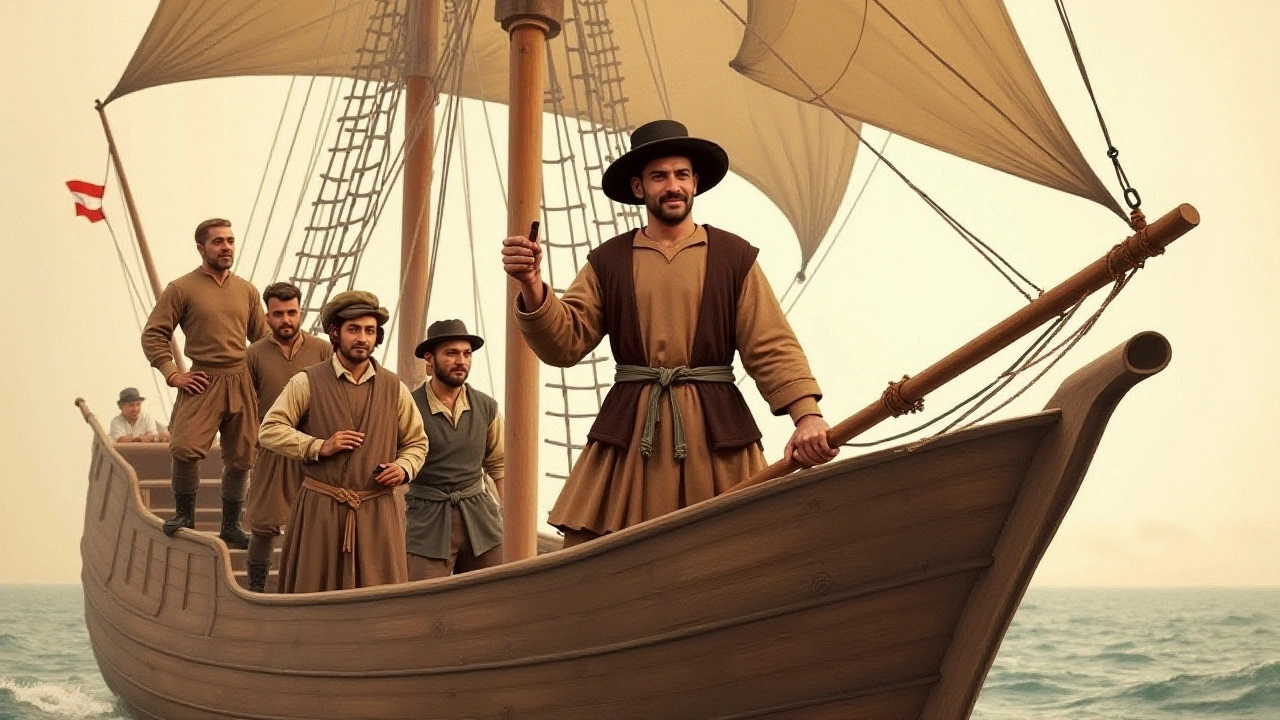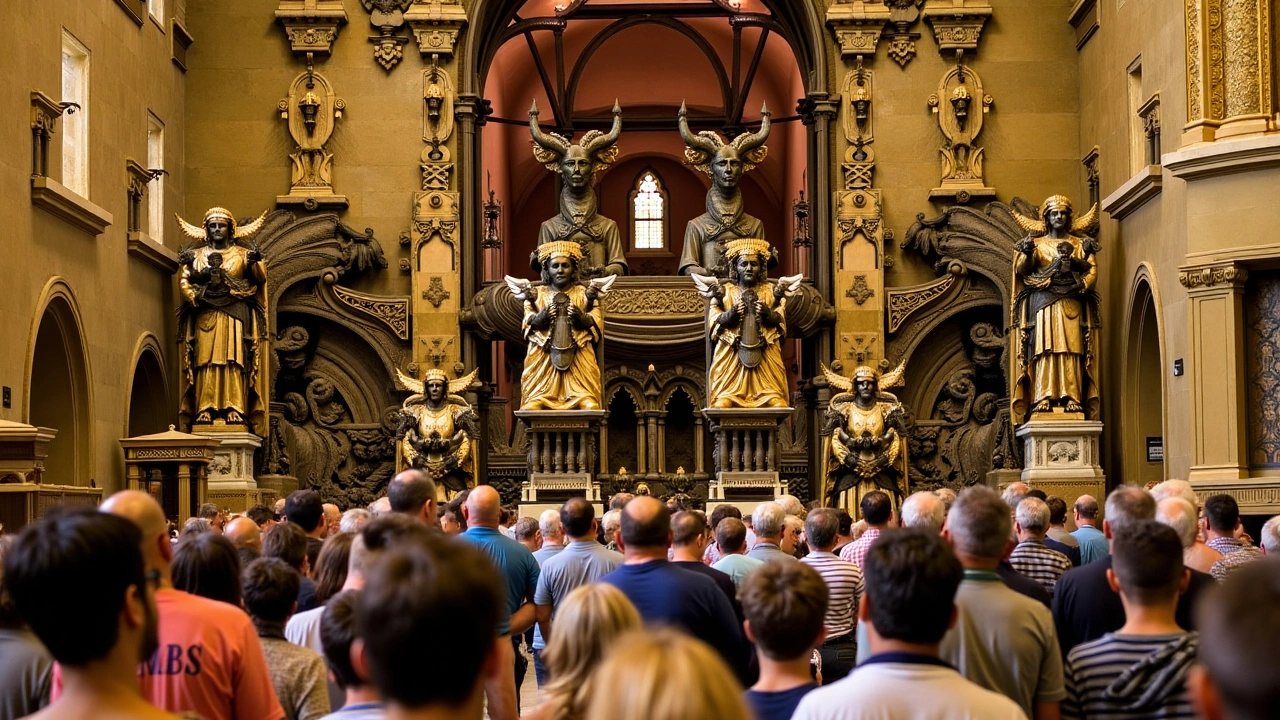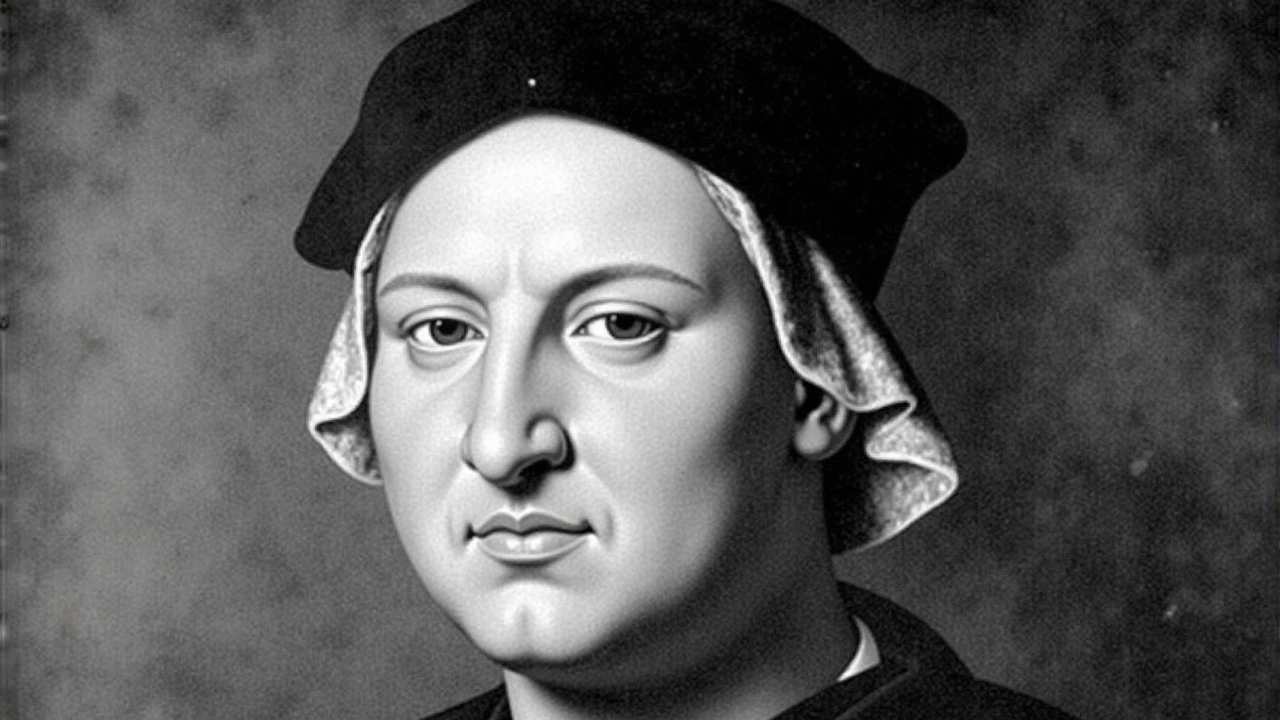Unraveling the Mysteries of Columbus' Origins
The story of Christopher Columbus, the famous maritime explorer whose expeditions across the Atlantic Ocean led to widespread awareness of the Americas, has long been shrouded in mystery, particularly concerning his origins. For centuries, historians and scientists have debated the nationality of Columbus, traditionally believed to have been born in Genoa, Italy. However, a groundbreaking new study spearheaded by forensic expert Jose Antonio Lorente has leveraged the advancements in DNA technology to present compelling evidence that challenges this entrenched notion and suggests an entirely different origin story.
Utilizing minute samples of remains interred in Seville Cathedral in Spain, Lorente and his team meticulously compared this genetic material with that of Columbus' known relatives and descendants. The results of this ambitious endeavor are nothing short of revolutionary, definitively placing Columbus’ origins within the Spanish Sephardic Jewish community. The DNA findings were revealed in a documentary titled 'Columbus DNA: The True Origin' broadcasted on Spain's national television network, TVE, offering a fresh perspective and clarity on a subject that has puzzled scholars for ages.

The Intricacies of DNA Analysis
The detailed examination involved an intricate analysis of both mitochondrial and chromosomal DNA, key elements in establishing ancestry. By studying the DNA of Columbus’ son, Fernando, scientists identified distinct Jewish traits that directly pointed to Columbus’ heritage stemming from Sephardic Jews on the Spanish Mediterranean coast or the Balearic Islands, both of which belonged to the Crown of Aragon during Columbus' time. This area was known to accommodate diverse Jewish communities, contrasting sharply with Genoa's lack of such population in the 15th century, thereby providing strong counter-evidence to the Genoese theory.
Moreover, the language of Columbus’ letters adds another dimension to these findings. Historians have noted that although Columbus had ties with Genoa, he consistently wrote in Spanish, even when corresponding with Genoese contacts. This choice of language further underpins the hypothesis of his Spanish roots, painting a portrait of Columbus not only as an explorer of distant new worlds but also as a man navigating complex cultural and ethnic dynamics.

Decades of Research Culminate in Discovery
The journey to uncover the true origins of Columbus was not an overnight achievement. It is the culmination of an arduous 22-year genetic research project led by Lorente, which involved painstaking examination and cross-referencing of historical records, long-forgotten documents, and the careful extraction of DNA from aged remains. Such detailed research underscores how modern scientific methodologies can illuminate the murky corridors of history, offering a clearer glimpse into the lives of figures we thought we knew.
The relevance of this discovery extends beyond the factual alteration of Columbus' birthplace. It invites a reconsideration of Columbus’ legacy and the motivations behind his famous voyages. Traditionally celebrated for establishing routes between Europe and the Americas, Columbus' expeditions inadvertently set in motion events with profound impact on indigenous populations, leading to significant cultural exchanges and historical transformations. Understanding Columbus’ background, including potential influences from Sephardic Jewish culture, adds nuance to interpretations of his life’s work and intentions.
The Broader Implications of the Findings
In light of these findings, historians and educators might be prompted to rethink the narrative surrounding Columbus. His newly identified heritage enriches the story of his maritime pursuits, embedding it within a richer social and cultural context of 15th-century Spain. Such a revelation challenges established academic positions and sparks a renewed interest in comprehensive studies of Columbus and the world he lived in.
Significantly, these DNA findings also enter the larger discourse on the legacy of Columbus, a figure whose image has been re-evaluated numerous times throughout history. Particularly in recent years, as societies grapple with past injustices linked to colonization and the marginalization of indigenous peoples, Columbus’ heritage becomes a deeply intriguing piece of the complex puzzle that is historical legacy. His story invites ongoing dialogue about exploration, identity, and the myriad forces that shape historical journeys.
Where ‘Columbus DNA: The True Origin’ Leads Us Next
The documentary ‘Columbus DNA: The True Origin’ not only unveils this scientific breakthrough but also signifies a broader commitment to historic inquiries that go beyond conventional wisdom. Through its investigative lens, viewers gain insight into the exhaustive research processes of Lorente and his team, as well as the technological marvels that facilitate these discoveries. With realms of untapped history at our fingertips, this study may very well be the starting point for further revelations about prominent figures from our past, challenging scholars to revisit old narratives armed with fresh data and new perspectives.
As science continues to advance, enabling us to revisit historical mysteries with newfound tools, the entwined stories of people like Christopher Columbus remind us that our understanding of history is ever-evolving. Each breakthrough offers a glimpse of both closure and the countless new questions waiting to be explored.


 Sports
Sports
Shaun Collins
October 14, 2024 AT 23:00Looks like Columbus was hiding a secret identity again and everyone’s losing their minds.
Chris Ward
October 14, 2024 AT 23:06Actually I think the DNA stuff is cool but we cant just toss out centuries of records because a few genes say otherwise. The whole thing feels a bit overhyped but still interesting.
Heather Stoelting
October 15, 2024 AT 00:30The DNA breakthrough is thrilling and opens new doors for us all.
It shows how science can rewrite the stories we thought were set in stone.
I love seeing researchers dig deep and bring fresh perspectives.
This kind of work fuels curiosity and inspires the next generation of historians.
Keep the momentum going!
Travis Cossairt
October 15, 2024 AT 00:40Yeah that's pretty cool but also kinda wild how fast the narrative can flip.
Not sure how many peple will actually change what they taught in school.
Amanda Friar
October 15, 2024 AT 00:50Oh great another DNA drama, just what we needed to spice up the history textbooks.
If you think this settles the debate you're missing the bigger picture of colonial impact.
Still, kudos to the lab folks for digging up some genetic gossip.
Sivaprasad Rajana
October 15, 2024 AT 01:03The study adds a new layer to Columbus' story.
It reminds us that identity can be complex.
Simple DNA tests can show hidden heritage.
It's good to see science and history work together.
Andrew Wilchak
October 15, 2024 AT 01:20Yo the DNA thing is wild but also makes you wonder what else we missed.
Might be time to look at other explorers too.
Roland Baber
October 15, 2024 AT 01:36The conversation around Columbus' heritage illustrates how our understanding of the past is always a work in progress.
When new evidence emerges, it challenges the foundations upon which we built narratives.
Rather than seeing this as a threat, we can view it as an invitation to deepen our inquiry.
History is not a static monument but a living dialogue between facts, interpretation, and perspective.
In this light, the DNA findings act as a fresh voice joining an age‑old chorus.
They remind us that personal identity, especially in the tumultuous 15th century, was often multilayered and fluid.
Recognizing a Sephardic Jewish connection does not erase Columbus' Italian ties, but enriches the tapestry of his background.
It also encourages us to reconsider the motivations and cultural influences that shaped his voyages.
Perhaps his navigation skills were honed not only by ambition but by a community that valued learning and trade.
Moreover, it underscores the power of interdisciplinary collaboration, where genetics meets archival research.
Such partnerships pave the way for more nuanced stories that honor both triumphs and tragedies.
While we must avoid glorifying the colonial outcomes, we can still appreciate the complex human dimensions behind the explorer.
This balanced approach helps us acknowledge the pain of conquest while also understanding the individual behind the sails.
In classrooms, incorporating this new angle can foster critical thinking and empathy among students.
Ultimately, the pursuit of truth, however messy, is what propels us forward as a society.